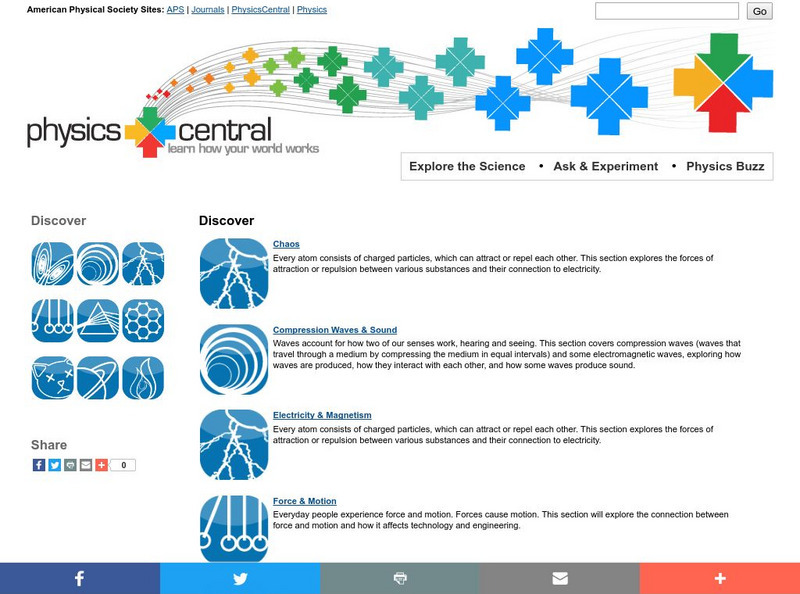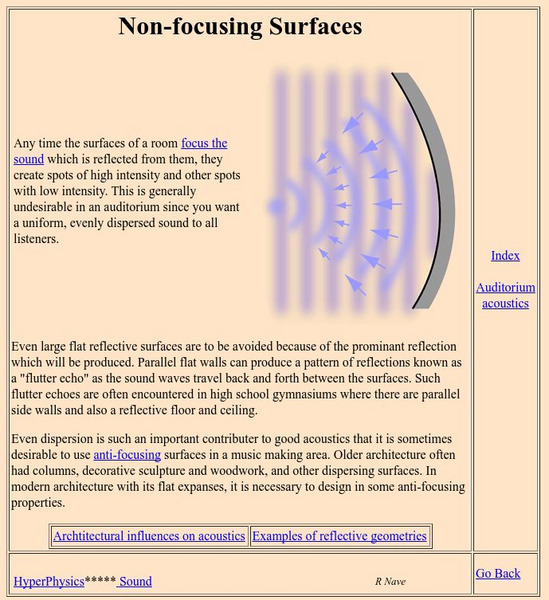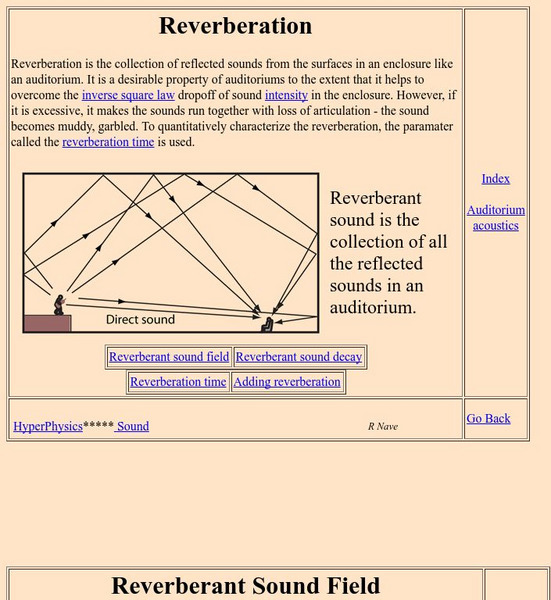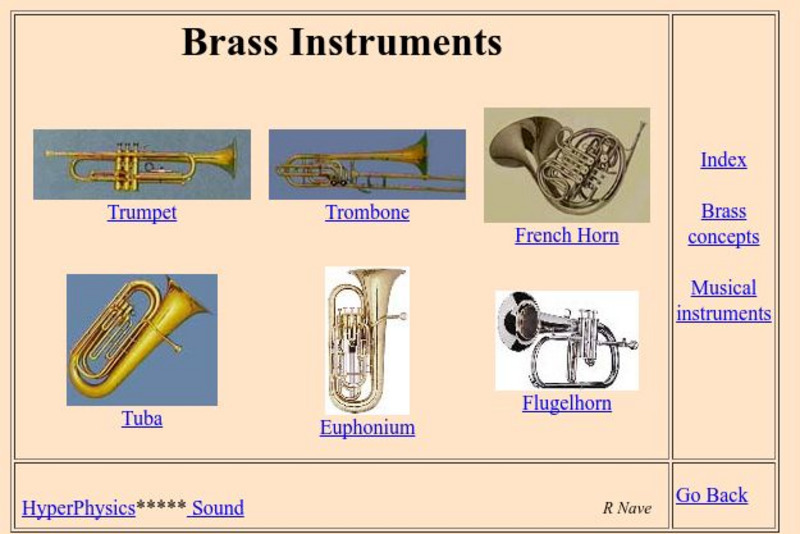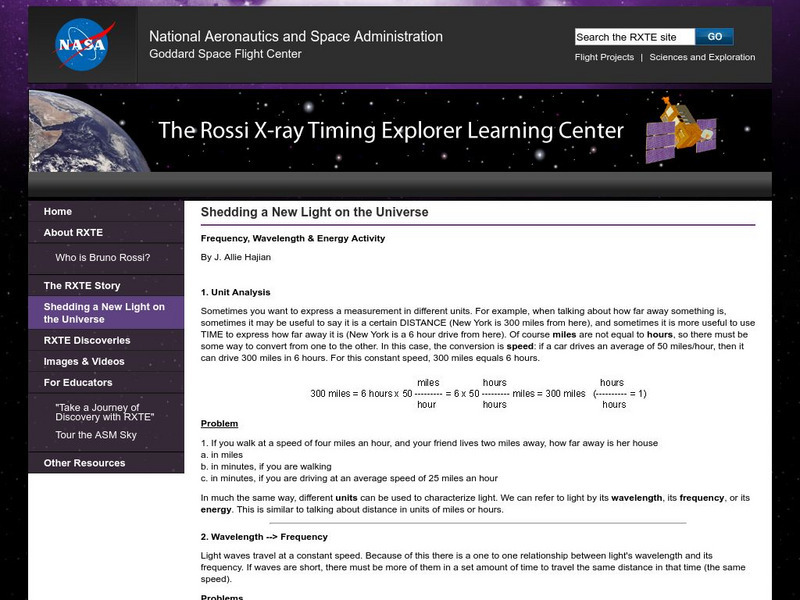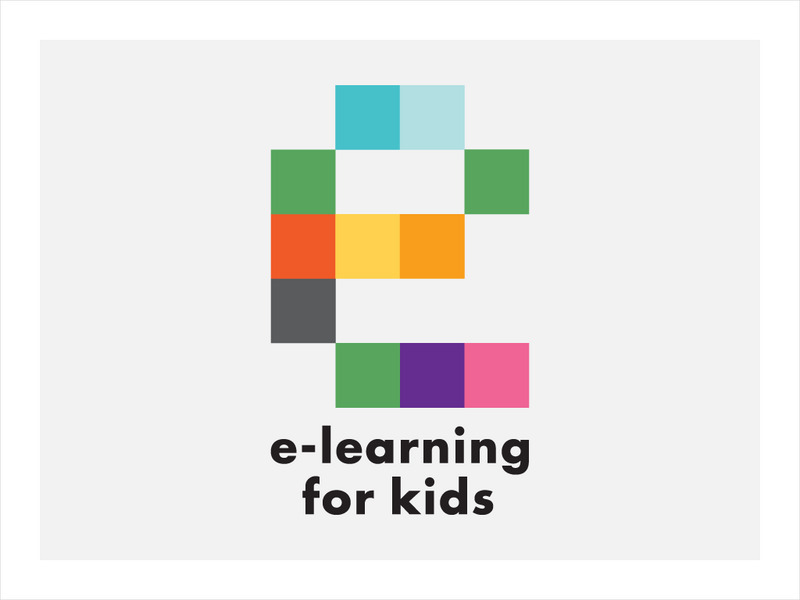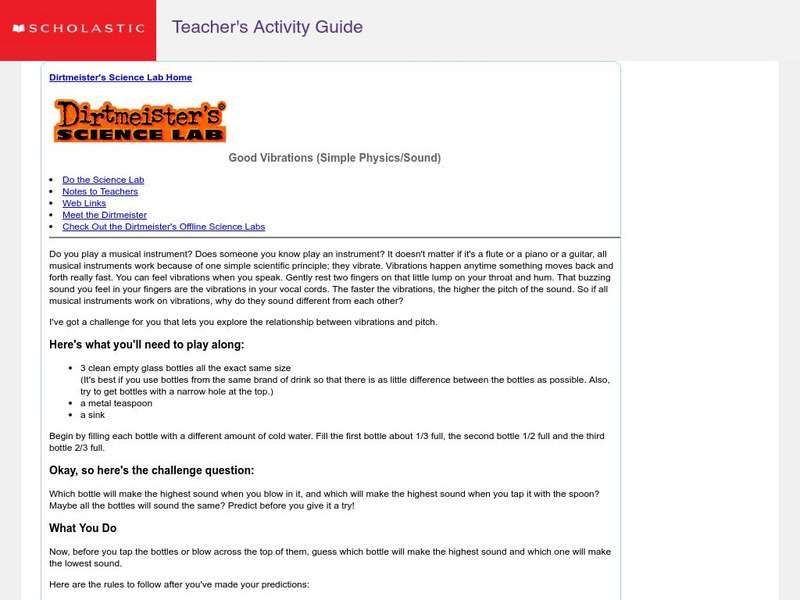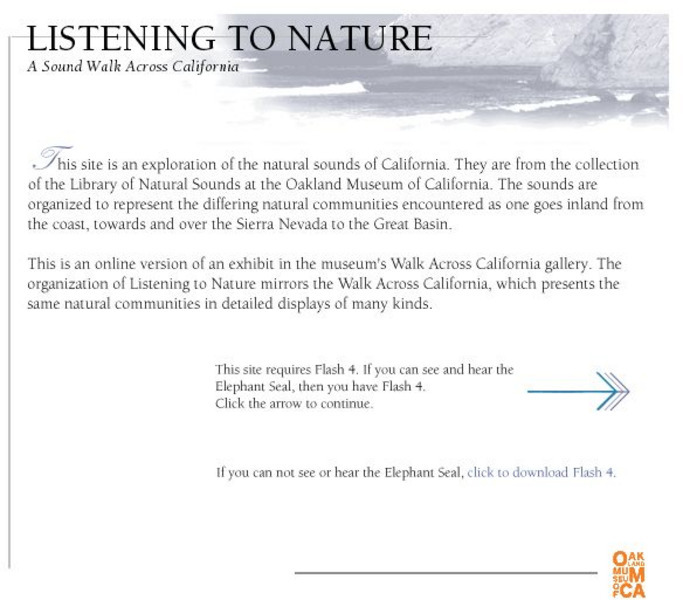Open Ed
Open Ed Sci: 8.3 Forces at a Distance
This unit launches with a slow-motion video of a speaker as it plays music. In the previous unit, students developed a model of sound. This unit allows students to investigate the cause of a speaker's vibration in addition to the effect.
PBS
Pbs Learning Media: Super Scientists
Grab your science tools and explore with PBS KIDS. Through hands-on activities and exciting media that transports you to space and in the Earth, this collection will bring science to life in your classroom. These resources help students...
Physics Central
American Physical Society: Physics Central: Discover Homepage
Link to nine major physics topics and dig deeper into the content. Find out about the work of scientists in each field and see example physical science experiments.
Georgia State University
Georgia State University: Hyper Physics: Musical Instruments
Homepage for a hypertext about the different families of musical instruments. From this page, users can retrieve information on a the acoustics of a variety of specific instruments: stringed instruments, woodwind instruments, brass...
Georgia State University
Georgia State University: Hyper Physics: Architecture for Acoustics
A physics tutorial on designing an auditorium and solving the problem of sound reflection. Illustrated.
Georgia State University
Georgia State University: Hyper Physics: Non Focusing Surfaces
This hypertext physics course tutorial on nonfocusing surfaces relates various design principles to good auditorium design. Illustrated.
Georgia State University
Georgia State University: Hyper Physics: The Place Theory
An indexing page for an elaborate and in-depth hyper-textbook on various physics topics. This page indexes several others which pertain to human ability to perceive sound and recognize pitch. Introduces and explains Place Theory.
Georgia State University
Georgia State University: Hyper Physics: Sound Propagation
This page and the many pages which are indexed to focus on the behaviors of sound which characterize it as a wave. Reflection, refraction, interference, diffraction and more are clearly illustrated and explained.
Georgia State University
Georgia State University: Hyper Physics: Water Tube Resonance Experiment
Online physics lab experiment in which students use resonating waves inside of a closed-end air column to determine the speed of sound. The form allows students to check their answers and receive immediate feedback.
Georgia State University
Georgia State University: Hyper Physics: Reverberation
A tutorial from a hypertext physics course book that discusses reverberation. Illustrated.
Georgia State University
Georgia State University: Hyper Physics: Sound Level Measurement
Home page for a hypertext physics course. Users can access subjects ranging from the sound wave parameters that effect hearing and communication to OSHA worplace standards.
Georgia State University
Georgia State University: Hyper Physics: Refraction of Sound
A discussion of refraction and its application to sound waves. Using analogies, graphics and real-life applications, this page and those that accompany it explain why and when sound waves bend.
Georgia State University
Georgia State University: Hyper Physics: Resonance
This hypertext physics course surveys sound resonance in musical instruments. Illustrated.
Georgia State University
Georgia State University: Hyper Physics: Sound and Hearing
Home page for a hypertext course on physics. Accesses a range of topics from hearing to sound measurement to sound propoation to musical instruments.
Georgia State University
Georgia State University: Hyper Physics: Speed of Sound
Physics tutorial on measuring the speed of sound in dry air. An interactive form allows the student to practice solving problems involving the temperature dependence of the speed of sound.
Georgia State University
Georgia State University: Hyper Physics: Brass Instruments
Understand the science of sound when performing with a brass instrument such as a trumpet or a trombone.
NASA
Rxte Learning Center: Frequency, Wave Length, and Energy Activity
Resource focuses on the relationship between the frequency, wavelength and speed of light. Has a link to an interactive activity relating frequency, wavelength, and energy.
Intel Corporation
Intel Engage: Designing Effective Projects: Dangerous Decibels
Middle schoolers investigate sound in their environment, particularly how sounds impact their lives. At the beginning of the unit, students use online simulations to investigate the properties of sound and learn about the components of a...
E-learning for Kids
E Learning for Kids: Science: Antarctica: How Can We Hear Sounds?
James lives on Antarctica and loves the unique sounds he hears there. He is curious to know how it is possible that we hear sounds. Join him to help figure this out.
E-learning for Kids
E Learning for Kids: Science: Antarctica: How Are Sounds Useful to Us?
Paul is a researcher on Antarctica. The topic of his research is sounds. Identify which objects make sounds, and learn to recognize different sounds.
Scholastic
Scholastic: Dirtmeister's Science Lab: Good Vibrations
An experiment that explores the relationship between vibrations and pitch. This site includes web links, a challenge question, and notes to the teacher.
Stanford University
Stanford University: A Sound Board Model
This resource provides three different examples of sound boards, and allows you to play them.
University of Washington
Hearing: Activities, Experiments, Models and More
Come and learn more about one of the five senses? Hearing is an integral part of our everyday life. To learn more use the activities, experiments, models and more wrapped into this hearing website.
Oakland Museum of California
Listening to Nature: A Sound Walk Across California
Terrific site with a wide variety of animal sounds, accompanied by species specific information.



